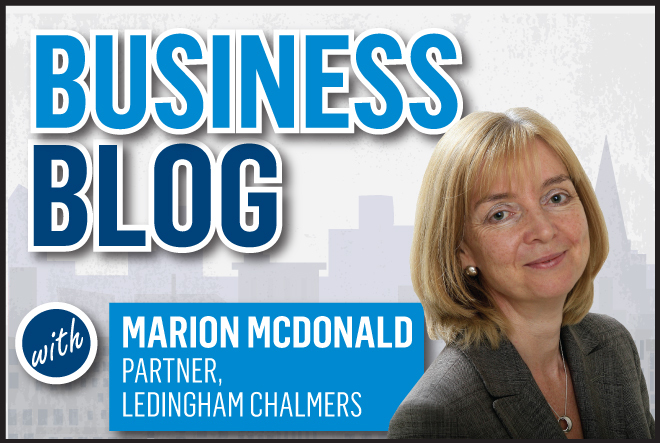Divorce can have disastrous implications for business. It’s not just the emotional fall out that is damaging, but agreeing on a financial settlement could even affect a family firm’s future viability. And the new changes to pensions have added another complicating factor when a marriage ends.
Everyone nearing retirement age is now having to do some serious thinking about their financial priorities for the future. Shall we have jam today or cash in our pension pot? Should we shop around for the best annuity available to keep us into the old age we hope we will live to enjoy? Or is there a middle route of financial compromise?
These are complicated decisions which even happily married couples may struggle to agree on. One may want to escape those long North East winters and use their pension to help fund a place in the sun. The other partner is looking forward to winter walking in the Cairngorms and has no plans for cashing in any of their retirement fund.
These are conversations we don’t tend to have in the first flush of romance. ‘How would you describe your attitude to financial planning for retirement?’ It just isn’t one of the topics most of us would broach when we are trying to be at our most scintillating.
So planning for retirement when you are divorcing requires some particularly difficult decisions to achieve fairness and business continuity, especially at a time when emotions are running high. And with all the recent changes to pensions, the impact on families going through divorce may be significant.
For many years it’s been the case that pensions have formed part of the pot of assets that are counted in the overall assessment of the parties’ worth. Then things were taken a step further. Not only was the value of the pension counted, but the pension pot itself could actually be shared between the couple in their divorce settlement.
Before the recent change, the pension asset was still “locked up” in each party’s pension pot until retirement. This meant that there might be a fight over who would get any cash available as part of the distribution of assets and who would get the pension pot which could only be realised on reaching retirement. After all, cash is king?
Under the new changes certain types of pensions can now just be cashed in. So could this result in a situation where one spouse insists the other cashes in their pension, leaving them with nothing left for their retirement? After all this might free up lots of cash, which might be what’s needed at this juncture. But it may not be the most prudent option.
This pension change could cause significant new concerns for anyone involved in separating or divorcing. They must consider the business consequences and the tax implications. They must consider the impact of spending the pension pot on their future and whether this course of action presents them with a problem or an opportunity.
Expert advice is always vital to ensure that the financial outcome ensures what is best for both parties, for their family and business continuity. A third party can mediate through difficult conversations and bring financial clarity when emotions may muddy the waters. It is vital to think through your options, reflect on the future and seek expert advice for guidance.
Marion McDonald is a partner at Ledingham Chalmers. She is based in the Aberdeen office.
